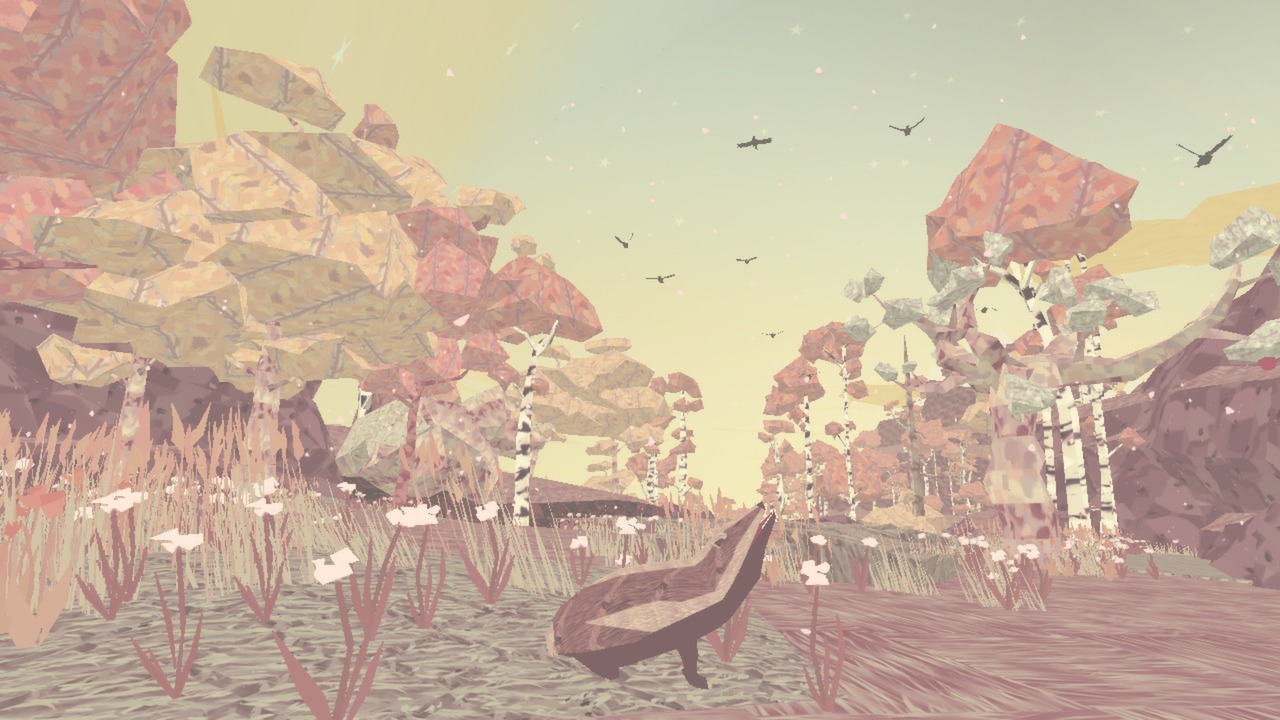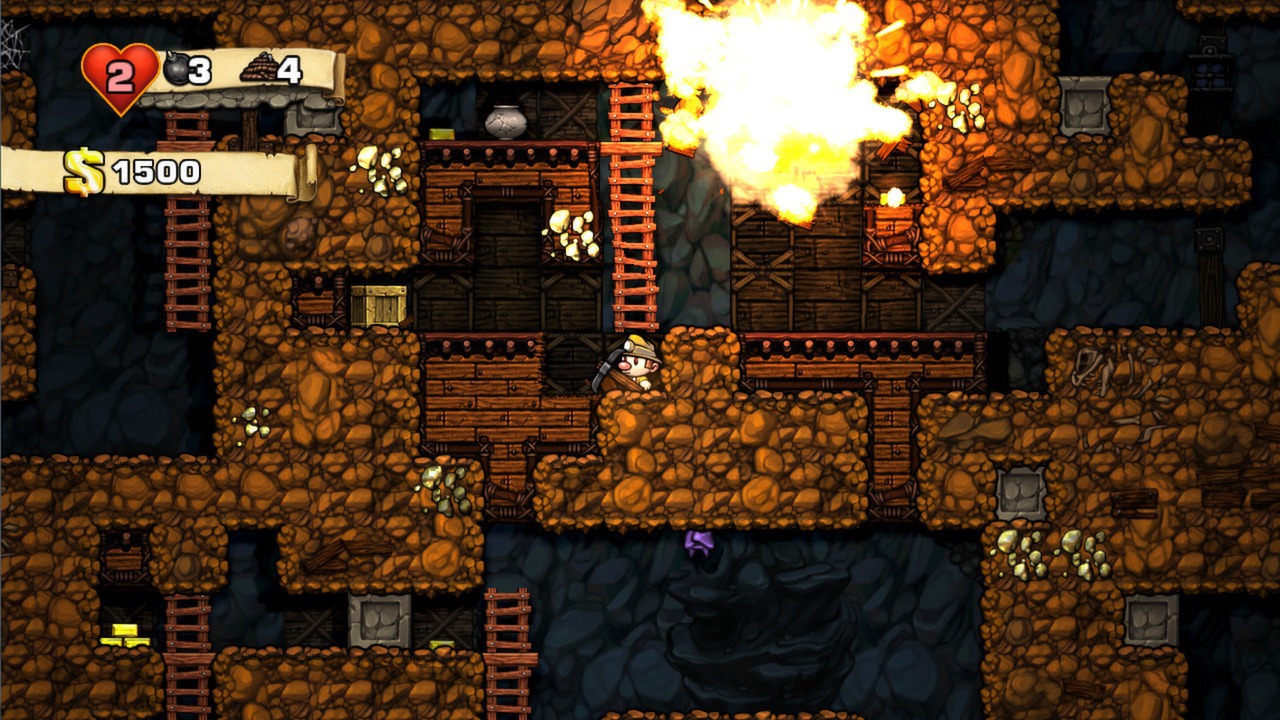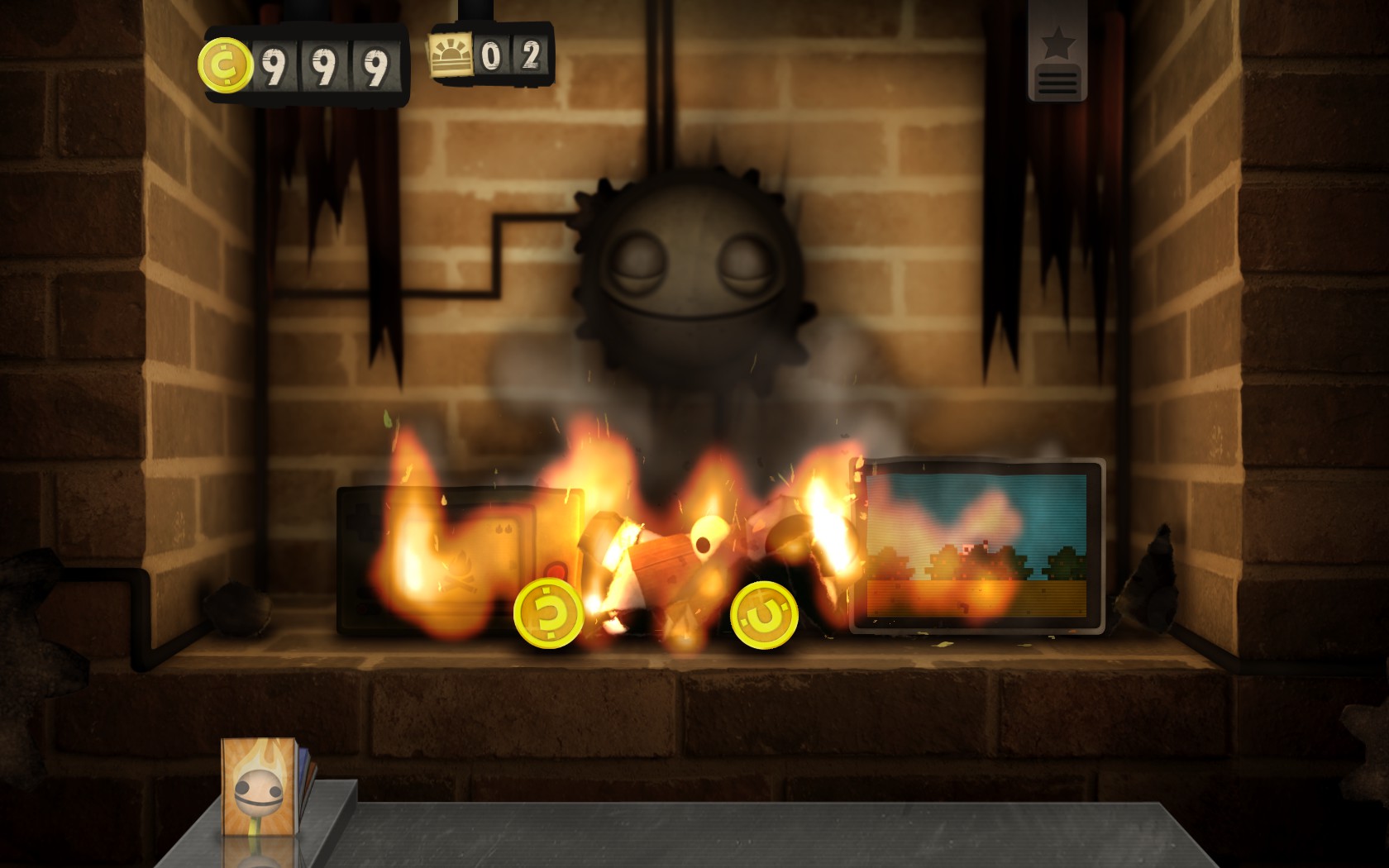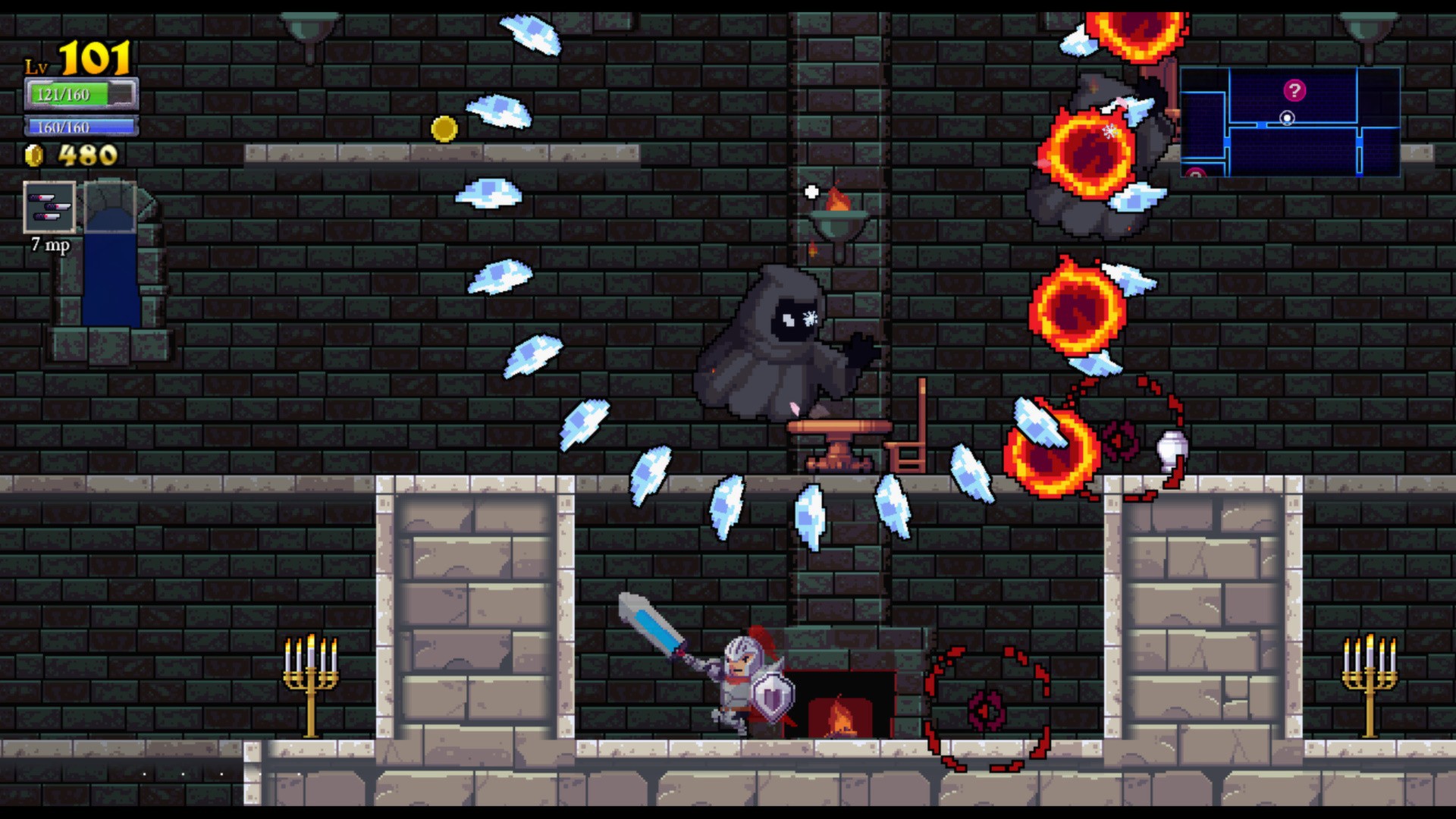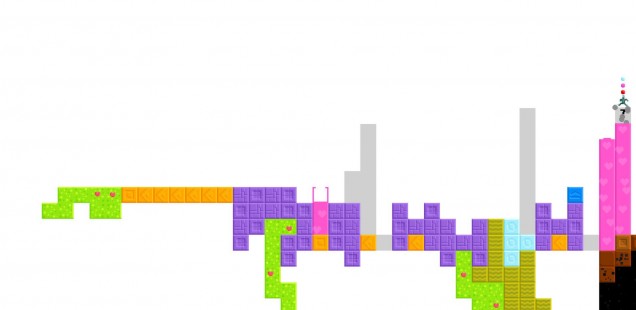
Games of 2013 (7/10)
A few of the games we liked last year.
There were a lot of great games in 2013. Far too many, in our opinion, for a list of five or ten, or to declare one our definite champion. Even a list of fifty would not do them justice, but we compiled one anyway. Continuing on from last week, we’ll be highlighting five games a day, Monday to Friday. No ranks or numbers, they are all equally close to our hearts.
Starseed Pilgrim
The most remarkable aspect of Starseed Pilgrim is its poetry. For the life of me, I cannot think of a single other game which has the audacity to express its aims and mechanics through a format which, in and of itself, is a puzzle. It’s the equivalent of learning how to solve a Rubik’s Cube from instructions written in elegiac couplets. Or perhaps the more appropriate comparison is to limping iambics, since that’s the meter the final feet of its central couplet most evokes: gain from loss one cannot measure / but broken hearts yield starseed treasure. It’s a cadence worthy of the most sophisticated poetry, and yet its aim here is purely didactic. It’s the sort of thing Virgil would write if he was a game designer living 2000 years beyond his time, and I’m not sure whether it’s to Virgil or to the creators of Starseed Pilgrim that this is a higher compliment.
Starseed Pilgrim is a challenging game, but uniquely so. Instead of testing reflexes or tenacity, it poses questions of literacy and competence. Can you decipher the poetry and apply it to your play? Do you understand and appreciate its symbols? Are you willing to embark upon the journey it offers? There is no “narrative” or “story,” strictly speaking; merely the player tending to a symphonic garden, flickering between planes of existence and digesting the poetry it puts forward along the way. I love this. Instead of dictating what play means, Starseed Pilgrim leaves it entirely up to the player to interpret how their interaction has had an impact, both upon the game and upon themselves. Frustration will surely be common, and yet it literally sows the seeds of promise. What other game so intuitively and intimately responds to the presence of its player?
For a game as difficult to appreciate as Starseed Pilgrim, it nevertheless enjoys the easiest of recommendations. If nothing else, the haunting beauty of a desolate ambiance and a sparse landscape is more than captivating enough. And still the confidence in its central mechanics and the expression thereof remain far more seductive. Whether before or since, there’s been no game quite like it.
I stood up to quiet the fates I’d deny; / I thought of an angel and knew I would fly
Shelter
Imagine you had five children, a bunch of merry little infants with an everlasting hunger for adventure. And everlasting appetite. Imagine you had to feed them, but couldn’t just go to the supermarket or buy something at the takeaway. Instead, you’d have to scour the fields for turnips or carrots and maybe, just by chance, you’d find a frog you could hunt and feed to your children. Imagine being a single badger mother.
The first time I saw Shelter, I didn’t get to play it, but observing two strangers trying to protect the little badgers turned out to be just as interesting. Wandering through the woods, they soon stopped talking about the game’s graphics and focused on their task, driven by maternal feelings. When I finally had the chance to have a closer look, I experienced something quite similar.
Though Shelter has its flaws, I barely noticed them. Protecting the badgers became increasingly difficult, and also more and more important to me. I kept searching for food, anxiously expecting the gigantic bird of prey to appear over our heads again. And it did, wresting more than just one screaming cub from our group. Nature itself was turning into a constant thread, the peaceful past of our woodland strolls long forgotten. I started to despise those who tried to hunt down the badgers, but the game itself doesn’t provide the comfort of taking sides. In the end, everyone just tries to survive and care for their families. That bird probably has mouths to feed, too.
Shelter is a very straightforward game with narrow paths and simple yet beautiful visuals. There’s no sophisticated narrative, no heroine to look up to. But if you give it a chance to tell its down-to-earth story of a badger family, you might discover a lot more.
Spelunky
It sounds like a trite superlative, but Spelunky may just be the perfect game. At least, if we assume some Socratic ideal of gameness, this is the closest videogames have ever come to achieving it – not that this should be their prime pursuit, mind. The game combines the procedural generation of roguelikes with entirely deterministic systems. Its environments are randomly generated, but its mechanics are positively predictable, a fine tuned set of platformer verbs – running, jumping, hitting enemies and throwing things – that come together to create something else entirely.
What this means is that descending through Spelunky’s mines may sometimes be easier and sometimes harder, but it’s always possible, and whether or not you succeed depends entirely on your own proficiency. This doesn’t require mastering its interlocked systems so much as it requires learning to comprehend them. Precision platforming is second only to situational awareness here: You don’t have to correct mid-fall if you look down before you leap. You don’t have to dodge arrows if you can predict where they will come down.
Once you start to understand this, the game starts to unfold and just keeps unfolding and unfolding, until you’re playing an entirely different game than the one you first started. Spelunky knows various forms of success. At first it’s getting a little bit further than before, making it to the jungle, the ice caves, the temple. Then it’s beating the game. Then it’s beating the game the hard way. Then it’s improving your score. Once a day, you do these things in a fixed set of levels that’s identical for all players, a wonderful challenge mode that has you competing with your friends, rather than against them.
But the game still isn’t over. The streaming community has recognized daily challenges as a feature tailor-made for them, and has taken the game even further. If you desire still more Spelunky, you might try to speedrun it, compete in races, or bet on how exactly streamers are going to die during their runs. If your name is Bananasaurus Rex, you could complete the Eggplant run, the recent payoff to a secret that has been buried in the game since its release on Xbox Live. And then turn your attention to breaking the game.
Spelunky tells you to go down, but it doesn’t tell you that it is, in fact, bottomless.
Little Inferno
The sheer honesty of Little Inferno really blew me away. Quite simply, it’s a game about isolation, loss and how we mediate our contact with others through material items. Your relationship with your neighbour, Sugar Lumps, grows as you gift each other items to burn in your furnace. You become better friends the more items you give each other, and in fact, finishing the game hinges explicitly on remembering these items. This is important: it’s not about remembering her, it’s about remembering what toys you gave her.
But this is transient, because you must burn everything in order to survive. You are alone in what presents itself as a nuclear winter. You don’t write back to your neighbour, you just send gifts. Hell, you even burn the letters you receive from her because they take up space. Nothing matters in Little Inferno except for the brief moment of setting it ablaze. And it was this that really struck me. In a game that’s so sparse, it’s incredibly honest. We are lost, we are alone, and we don’t always know how to talk about it.
Little Inferno is a lesson in creating atmosphere. It gives you just the right amount of detail, without overburdening you. It tells you: the world is fucked, there is snow everywhere, and you will most likely die from cold if you don’t do this. And that’s it. It lets your mind fill in the blanks. Did we create this apocalypse? Is it our need to burn through our precious resources for our own entertainment, disguised as survival, that has created this irrevocable world? Little Inferno is a comment on consumerism as much as it is a comment on how we play games. I say comment and not critique because Little Inferno forces you to play into this consumerism, just as we do every day of our life. It is unavoidable, because it’s a climate that has become inseparable from the concept of humanity. We are hurtling towards our own destruction, one toy at a time.
– Kailtin Tremblay, ThatMonster
Rogue Legacy
Conventional wisdom suggests that failure is the precursor to learning. Every unsuccessful venture is just wisdom gained. Rogue Legacy, and every roguelike that has come before it, have proven that false. Failure is just that: failure. The slow, painful build-up of talent, capability and tools just leads to the inevitable second failure. Or third. Or thirtieth. Or three hundredth. Every darkened portrait is proof of another failure, a family whose genetic legacy betrays many more deaths than senses of progress. As with every parent, so too shall every child, fail. All for a little bit of gold.
In the face of such pessimism, and hundreds of years of corpses populating the family tree, Rogue Legacy accomplishes something special, albeit macabre. The twisty castle, waves of monsters and bleak hallways of deadly spikes create an experience that endures through the tragedy. Death is inevitable, failure is assured, but the attempt is still worth it. Each run promises some improvement, some progress, even in the face of inevitable failure. Even if no lessons are learned, there’s still something there worth chasing down. One more journal, one last bag of gold, or perhaps the hope that the next run will be better.
Rogue Legacy breaks no boundaries with art style, music direction or even mechanics. Nothing about the game is too out there, unusual or novel. What’s there is polished to a mirror shine, everything comes together beautifully and behind every single failure is the haunting call of the siren begging one more attempt. Perhaps, in that way, every failure does teach something. There is no shame in failure: each successive trial will be better and every single one has been worth it. Perhaps that lesson is worth its weight in gold.
